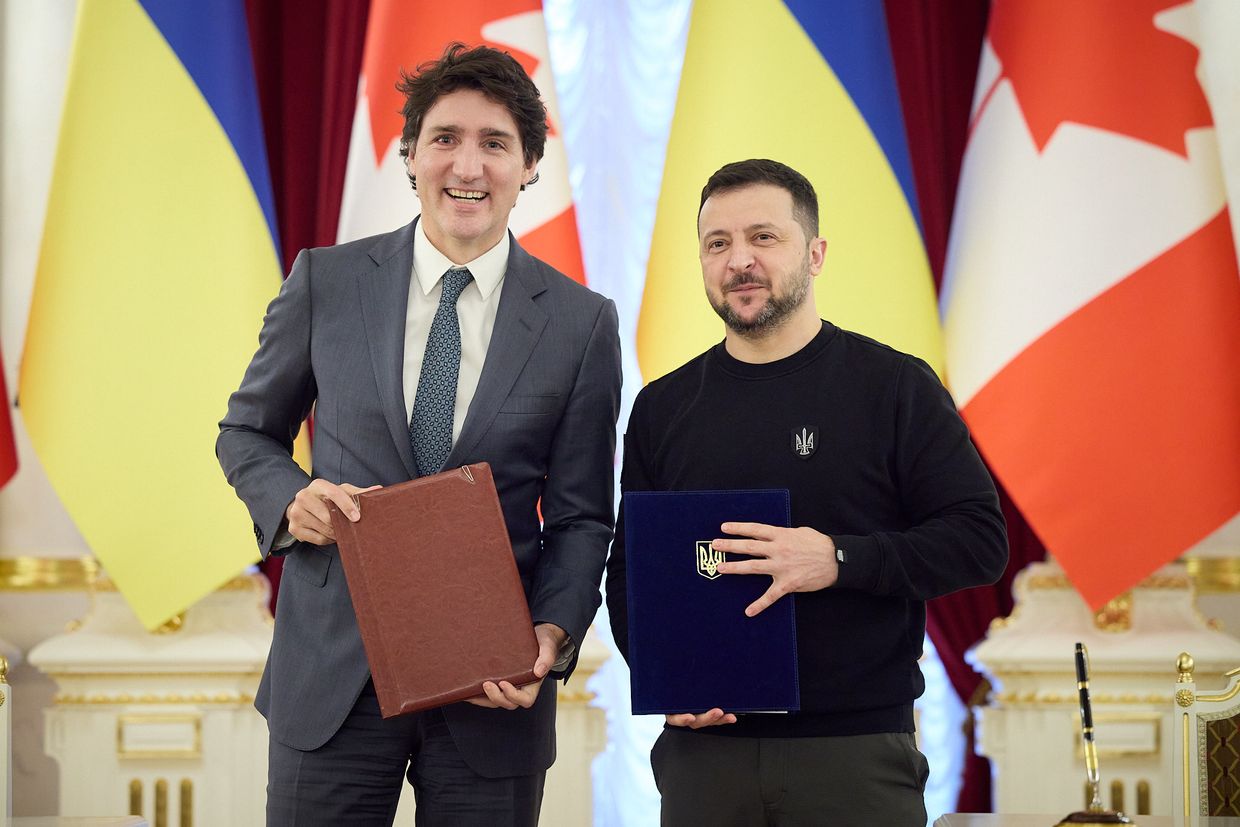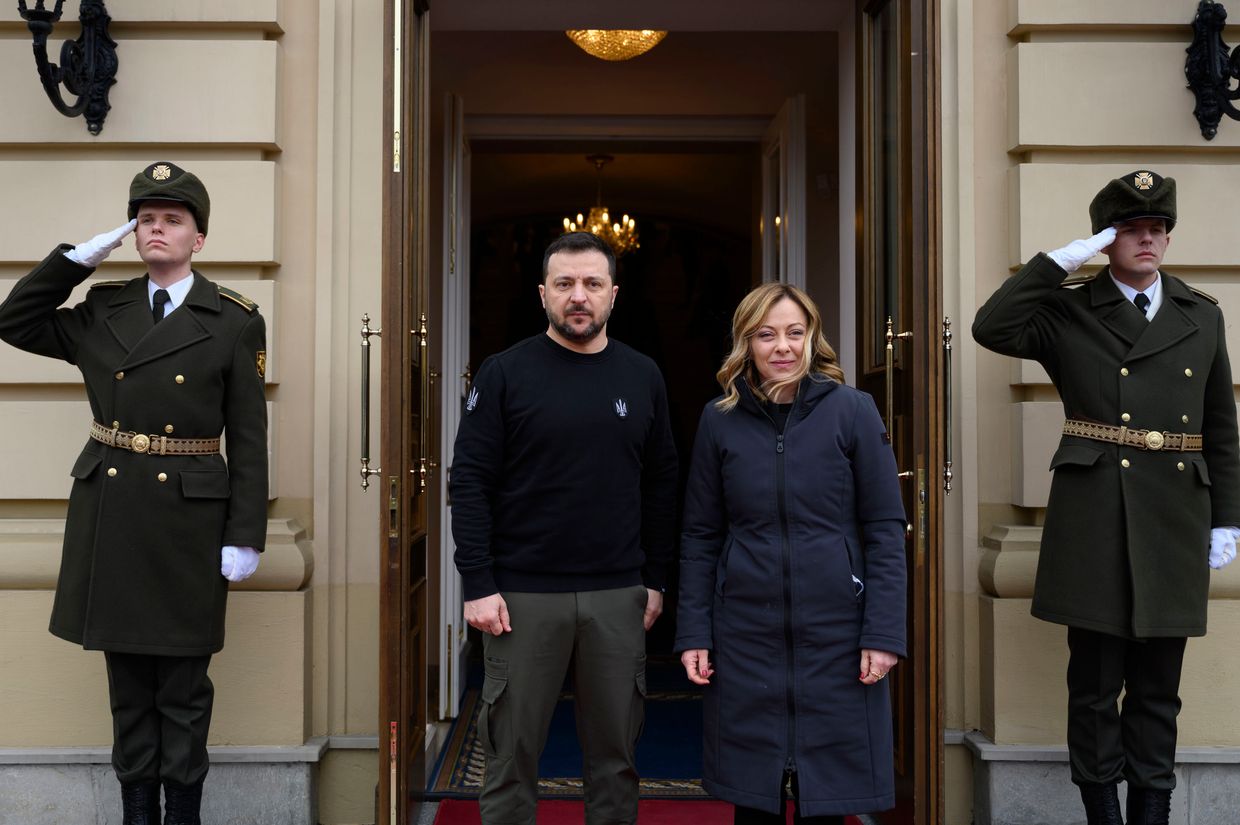Daily Flyer - February 24, 2024
A voice of Ukraine to the West

Ukraine's Two-Year Struggle: Invasion and Resilience

Exactly two years ago, on February 24, 2022, Russia initiated a full-scale invasion of Ukraine, marking the largest military attack in Europe since World War II. This tragic event marked a turning point in a decade of Russian aggression, with Ukraine resiliently defying the odds and continuing to fight for its sovereignty. Despite immense challenges, the country has liberated occupied territories and faced significant human and infrastructural costs.
Human casualties:
The United Nations High Commissioner for Human Rights reported that over the past two years, an estimated 10,582 civilians have lost their lives, and 19,875 others have been injured in Ukraine. However, due to Russian occupation in certain regions, the actual casualty numbers may be much higher, encompassing about 18% of Ukraine's territory.
Military Casualties:
Ukrainian soldiers have borne a heavy burden during the conflict. While official casualty numbers are not disclosed, thousands are believed to be held in Russian captivity, facing torture and inhumane conditions. The ongoing war has taken a toll on Ukraine's armed forces, underscoring the resilience and determination of its military.
Destruction of Cities:
Once-prosperous Ukrainian cities, particularly in the east, have faced severe destruction. Names like Bakhmut, Avdiivka, and Mariupol have become synonymous with the brutality of Russia's military campaign. The urban landscape bears witness to the devastating impact of the conflict on civilian infrastructure and livelihoods.
War Crimes and Human Rights Violations:
Russian soldiers have been implicated in numerous war crimes on Ukrainian soil. The Prosecutor General's Office has documented at least 126,135 war crimes, ranging from deliberate targeting of civilians and infrastructure to abductions, rape, torture, unlawful detentions, and forced deportations. Incidents like the Bucha massacre and mass graves in Izium highlight the gravity of these violations.
- Impact on Children:
Ukrainian children have been disproportionately affected, with at least 528 killed and 1,230 injured. The Russian campaign has also seen the kidnapping of over 19,000 children, with fewer than 400 successfully brought back. The International Criminal Court's arrest warrants for Maria Lvova-Belova and Russian President Vladimir Putin underscore the seriousness of these crimes.
Ecocide and Nuclear Blackmail:
Russia's destruction of the Kakhovka dam in June 2023 exemplifies the use of ecocide as a weapon of war, leading to widespread flooding and humanitarian crises. Additionally, the occupation of the Zaporizhzhia Nuclear Power Plant poses a nuclear blackmail threat with potentially disastrous consequences for Europe.
As the world debates "war fatigue" and questions Ukraine's ability to achieve victory, it is essential to reflect on the immense challenges and sacrifices Ukrainians have endured. The ongoing support for Ukraine's struggle for sovereignty, reconstruction, and Euro-integration remains crucial. The nation's resilience in the face of adversity serves as a testament to the indomitable spirit of its people.
Canada, Italy sign security agreements with Ukraine

Both Canada and Italy have solidified their commitment to Ukraine by signing security assistance agreements, as announced by President Volodymyr Zelensky on Feb. 24.
In addition to the U.K., Germany, Denmark, and France, which had previously signed similar agreements based on a G7 pledge last July to support Ukraine against Russian aggression, Canada and Italy have now joined the efforts.
Canadian Prime Minister Justin Trudeau and Italian Prime Minister Giorgia Meloni arrived in Kyiv on the two-year anniversary of Russia's full-scale invasion, along with Belgian Prime Minister Alexander De Croo and European Commission President Ursula von der Leyen.
The 10-year security agreement with Canada involves an allocation of over $2.2 billion in macro-financial and defense assistance for 2024, according to Zelensky. He expressed gratitude to Trudeau and the Canadian people for their steadfast support throughout Ukraine's conflict.
Trudeau emphasized that the agreement is designed to extend beyond 10 years, highlighting the need to stand with Ukraine despite Russia's relentless assault. In a social media post, Trudeau reiterated, "Despite Russia’s relentless assault, Ukrainians are standing strong. We need to continue standing with them."

Zelensky described the agreement with Italy as laying a robust foundation for a long-term security partnership between the two countries. Expressing appreciation for Italy's support, he acknowledged their commitment to Ukraine's defense capabilities, recovery efforts, and approval of military aid until the end of 2024.
The President noted that discussions with Prime Minister Meloni also covered additional support for Ukraine in the context of Italy’s G7 Presidency, reinforcing the collaborative efforts among nations to bolster Ukraine's resilience.
12 Russian a drones and 2 X-59 missiles downed over 3 oblasts
The Defence Forces of Ukraine's South have reported the successful interception of 12 Russian attack drones and two Kh-59 missiles in their operational area.
According to the Defence Forces of Ukraine's South on Telegram and Ukrainian Air Force sources, Shahed-131/136 attack UAVs, launched from the Black Sea, executed complex maneuvers over coastal and inland areas toward central oblasts.
Air defense units in the operational area successfully shot down 12 kamikaze drones, with two being intercepted over Mykolaiv Oblast and five over Kirovohrad and Odesa oblasts.
Additionally, the enemy launched Kh-59 missiles from a tactical aircraft in the Sea of Azov. Ukrainian air defense forces managed to destroy two of these missiles in Kirovohrad Oblast.
The fate of the aircraft involved in the attack is currently under investigation.
The military reported that one of the downed drones fell into a residential area in Odesa, resulting in destruction and fire in a typical Odesa courtyard. The incident caused the complete destruction of an apartment, leading to the death of its owner. Rescue workers successfully recovered the owner's wife from under the rubble, and she was transported to the hospital in serious condition. Two other residents from a neighboring apartment were also hospitalized with burns and other injuries.
In an update, Ukraine's Air Force clarified that the Russians utilized two Iskander-M ballistic missiles (launched from Rostov Oblast), three Kh-59 air-launched missiles (launched from the temporarily occupied territories of Kherson Oblast), and 12 Shahed attack UAVs (launched from Primorsko-Akhtarsk and Chauda) in the attack on Ukraine during the night of February 23-24.

